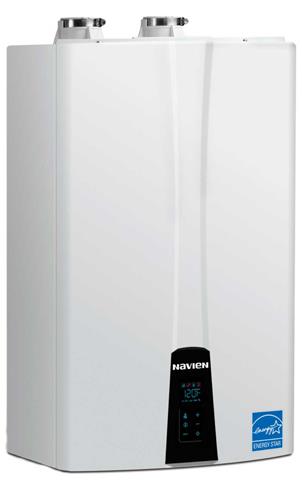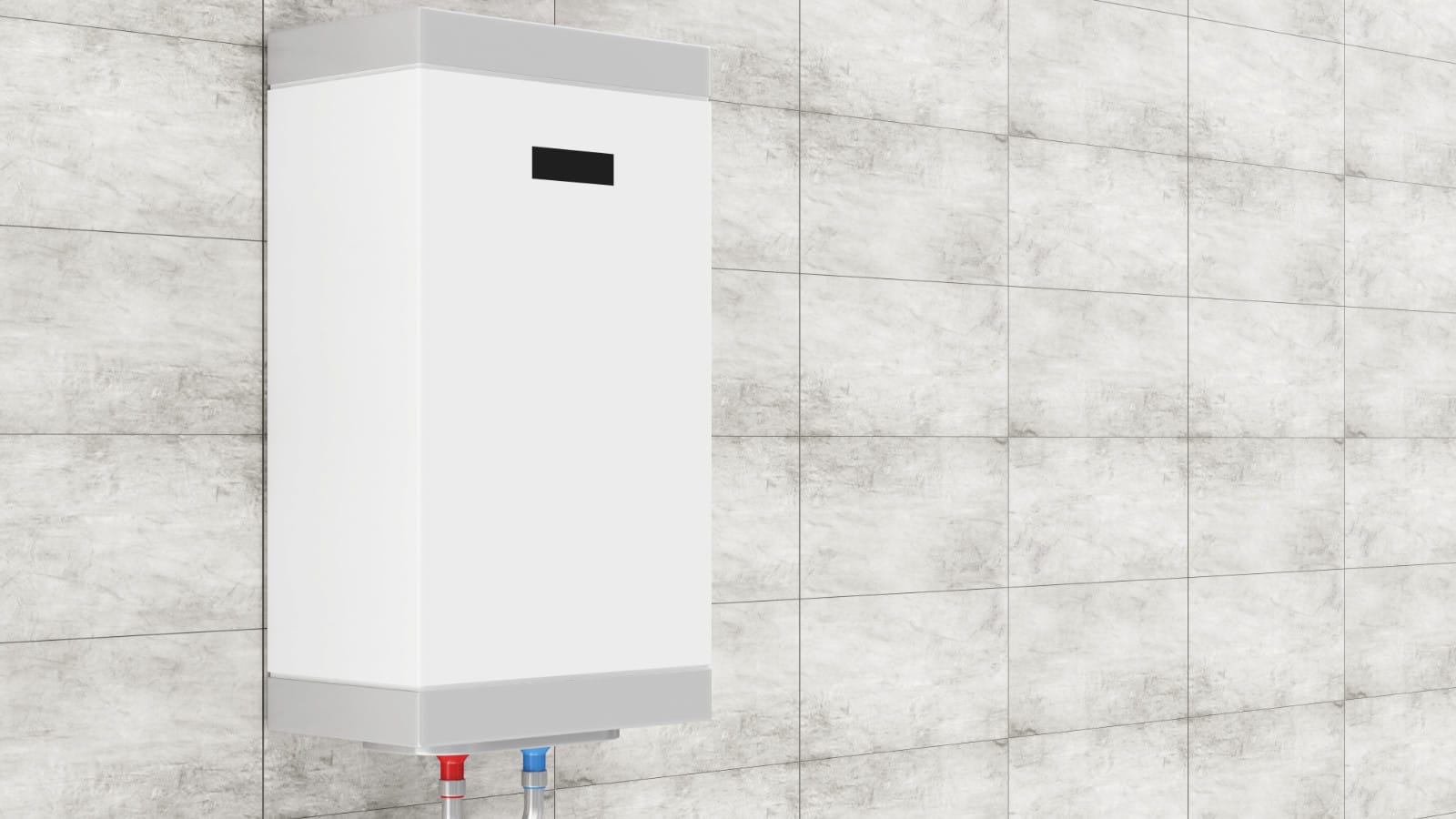We've noticed this great article relating to Pros and Cons of Tankless Water Heater down the page on the net and reckoned it made good sense to discuss it with you on this page.

In a world where benefit and performance preponderate, it's no surprise that home owners are continuously looking for smarter ways to manage their home's power usage and comfort. One advancement that has continuously gained appeal is the tankless hot water heater. But just what makes these systems attract attention from the conventional tank-based designs a lot of us matured with? Let's dive in and check out the benefits of tankless water heaters, helping you choose if it's time to make the button in your house.
Intro
Image this: you step into the shower after a lengthy day, expecting a calming cascade of hot water, just to be greeted by icy droplets because the last person used it all up. Sound acquainted? Conventional water heaters store a set quantity of warm water, indicating you go to the grace of that container's supply. Tankless systems, on the other hand, heat water on demand. Say goodbye to running out mid-shower, no more fumbling with timetables simply to ensure warm water is available.
Understanding Tankless Water Heaters
What Are Tankless Water Heaters?
Tankless water heaters, sometimes called on-demand or immediate hot water heater, give warm water only as it's needed. Rather than saving gallons of pre-heated water, these systems kick right into activity the minute you turn on the faucet. Water passes through a warm exchanger, heating up in real-time, implying you get a continuous circulation of warm water without the need for a big storage tank sitting idly by.
Exactly how Do They Differ from Traditional Systems?
Standard heating systems hold a storage tank of hot water, using power to keep that storage tank at a consistent temperature. Tankless units get rid of the standing supply, cutting down on lost power and the bulky footprint of a large cylinder. Basically, you're upgrading from a "stockpile" mindset to a "made-to-order" approach.
Common Kinds Of Tankless Systems
Tankless water heaters normally can be found in two varieties: gas and electrical. Gas designs often tend to provide higher flow prices, suitable for bigger houses, while electrical models frequently offer smaller homes and are normally less complicated to install. In addition, some systems are designed for point-of-use (offering one component) while others can deal with the entire home's warm water needs.
Trick Advantages of Tankless Water Heaters
1. Limitless Hot Water Supply
Ever before had to arrange showers so every person obtains their reasonable share of hot water? With tankless, that ends up being a thing of the past. As long as the heating system's flow ability isn't exceeded, you can take back-to-back showers without turning into a popsicle.
2. Energy Efficiency and Price Cost Savings
No more warming a giant container's worth of water and keeping it toasty throughout the day. Tankless heating units lower standby power losses, which can reduce utility expenses. While the first price could be higher, the long-lasting financial savings often warrant the investment.
3. Space-Saving Style
If your home is short on storage, eliminating the cumbersome storage tank frees up useful area. Tankless systems are compact and can usually be mounted on wall surfaces, stashed in edges, or set up in tight utility closets without grabbing all of the whole space.
4. Longer Life-span
A well-kept tankless water heater can outlast its tank-based relative. Standard containers may last 10-15 years, while tankless models can maintain downing along for twenty years or more, making them a strong financial investment with time.
5. Improved Water Quality
Storing water in a container can sometimes cause debris build-up or a somewhat "off" taste. With tankless systems, fresh water is heated right away, lowering the opportunities of sediment build-up and potentially using cleaner-tasting water.
Considerations Prior To Changing
Though the advantages are compelling, it's important to take into consideration a few variables prior to fully committing.
Preliminary Financial Investment Costs
Tankless heating systems normally come with a higher in advance price tag. In between the unit itself and prospective installment modifications, the first price could provide you sticker label shock. Yet remember to see it as a long-lasting investment.
Installation Needs
Depending upon your home's infrastructure, you may require added electrical ability or gas line upgrades. Guarantee you comprehend the setup requirements and talk to an expert to avoid surprises.
Evaluating Your Home's Water Usage Patterns
If your house all at once uses multiple fixtures with high hot water need, make sure the device's circulation rate satisfies your needs. Recognizing your use patterns assists you select the right size and type of tankless heating system.
Upkeep and Treatment Tips
Tankless systems are reasonably reduced maintenance, yet they aren't set-it-and-forget-it devices.
Routine Cleansing and Descaling
Tough water minerals can develop in the warm exchanger, influencing effectiveness. Regular descaling (typically recommended annually) keeps the system performing at peak performance.
Yearly Specialist Evaluations
A yearly checkup from an expert makes certain minor problems are captured early. They'll assess the device's performance, try to find leaks, and assist maintain optimum effectiveness.
Guaranteeing Appropriate Ventilation
For gas designs, appropriate ventilation is essential to securely expel exhaust gases. Make certain venting systems are tidy and appropriately mounted to prevent any type of possible safety risks.
Contrasting Different Brands and Designs
Not all tankless water heaters are produced equivalent.
Researching Dependable Producers
Try to find respectable brand names with a background of producing top quality devices. A reliable maker commonly offers far better customer assistance and longer guarantees.
Reading Reviews and Individual Feedback
Customer evaluations and feedback from next-door neighbors or pals that have gone tankless can use beneficial understandings. Occasionally, real-life experiences can be a lot more telling than advertising and marketing pamphlets.
Installment: Do It Yourself or Expert?
While some home owners enjoy dealing with tasks themselves, tankless setup might not be the very best time to break out the tool kit.
Pros and Cons of Do It Yourself Installation
A do it yourself mount might save money, however it features dangers. Incorrect installation can cause inadequacy or safety issues. If you come in handy and have experience, it might be practical-- but wage caution.
When to Call an Expert Plumber
For the majority of, calling a professional guarantees everything's done appropriately. A specialist plumbing recognizes local codes, sizing requirements, and airing vent specifications, decreasing the risk of problems.
Optimizing Effectiveness
You've purchased a tankless unit-- now optimize its performance.
Optimum Temperature Level Setups
Many people establish their systems between 120-140 F. Adjusting the temperature level can boost convenience and savings. Experiment to discover a wonderful area that doesn't throw away power.
Pairing with Low-Flow Fixtures
Intend to extend your device's capacities? Take into consideration mounting low-flow showerheads and faucets. They minimize water use, enabling your tankless system to supply a steady stream of hot water without straining.
Ecological Effect
Tankless hot water heater align with greener living goals.
Lowered Carbon Impact
By utilizing much less power and just heating water as required, tankless systems can decrease your home's carbon footprint, lowering your environmental impact.
Conserving Natural Resources
Much less power usage and much less lost hot water translate right into fewer natural deposits being utilized, an environmental win-win.
That Benefits A Lot Of from Tankless Heaters?
The appeal of tankless heating units is that they can fit a range of households.
Big Family Members vs. Single Occupants
Big families might love the countless hot water supply, while solitary residents value the power cost savings from not heating up a whole container for simply someone's early morning shower.
Homeowners with Minimal Space
If your home is short on square video footage, losing the large container liberates room for various other essentials-- or perhaps just a lot more elbow room.
Eco-Conscious Customers
Going tankless aligns with eco-friendly values, ensuring you're not losing power or resources.
Future Patterns in Tankless Water Heaters
The world of home appliances is ever-evolving, and tankless hot water heater are no exception.
Smart Home Assimilation
Envision adjusting your hot water heater's temperature level via an application or getting maintenance informs on your phone. As wise home tech advancements, we'll see more connection and ease.
Developments in Modern technology
R&D is continuously improving warmth exchangers, making units extra effective and long lasting. Future versions might be also quieter, more small, and better matched for varying climates.
Final thought
Choosing a tankless water heater is more than simply upgrading your home's hot water system; it's purchasing lasting comfort, energy efficiency, and a greener lifestyle. By considering your home's water usage, being mindful of installation requirements, and committing to normal upkeep, you can appreciate a constant stream of hot water without the luggage of a large container. As modern technology evolves, you can look forward to also smarter, extra effective tankless remedies that not just make your life much easier but also profit the planet.
5 Benefits of Tankless Water Heaters
Save Valuable Space
Since tankless water heaters do not have a massive 40+ gallon tank of water, they are considerably smaller and can fit in more narrow spaces in your home.
If you are working with limited square footage, a tankless water heater will still provide you with the hot water you need while taking up significantly less space in your home. While the exact size of a tankless water heater varies depending on the brand, some are as small as a carry-on suitcase.
Endless Supply of Hot Water
While a traditional water heater preheats and stores your water in the tank, tankless water heaters do not rely on a reservoir system.
This means that they do not run out of hot water like traditional water heaters since they make hot water as needed. Traditional water heaters need to stop and reheat water when the tank inevitably runs out, but tankless water heaters do not have this issue.
Provide Warm Water On-Demand
As mentioned above, tankless water heaters do not preheat a certain amount of water and then store it in a massive tank to be used later. An advantage of installing a tankless water heater includes water being heated instantly whenever you turn on the faucet.
When you turn on the water, it will travel through a heat exchanger in the unit and be heated with either an electric element or a natural gas burner. Gone are the days of having to ration out your hot water to make sure that you do not run out.
Longer Life Cycle
Not only do tankless water heaters provide an endless supply of hot water for your home whenever you want it, but these units tend to have a longer lifespan than water heaters with tanks.
Tanked water heaters have an average lifespan of around 10 years, as the tank is prone to corrosion, leading to serious issues. In comparison, tankless water heaters can last for around 15 to 20 years with the proper maintenance and tune-ups.
Energy Efficient
Compared to traditional water heaters, tankless water heaters are a more energy-efficient water heating option for your home. Tank water heaters must heat and reheat the water stored in the tank throughout the day, even if you are not home.
This energy use adds up over time, leading to an increase in your energy bills and added strain on your unit. A benefit of buying a tankless water heater includes saving money since it only operates when you turn on the hot water. Since it only heats up as needed, this can decrease your energy bills and save you money in the long run.
https://callrandazzo.com/blog/5-benefits-of-tankless-water-heaters/

Hopefully you liked our section about Pros and Cons of Tankless Water Heater. Thank you so much for spending some time to read our post. In case you enjoyed our page if you please consider to pass it around. We appreciate reading our article about Why You Should Consider a Tankless Water Heater.
Here